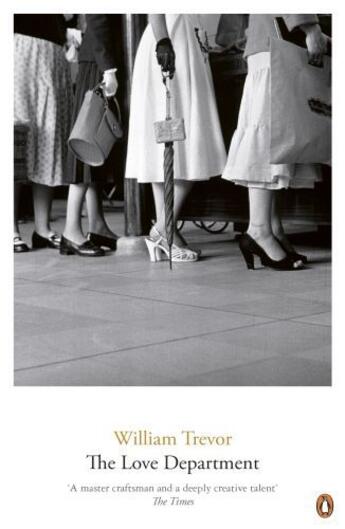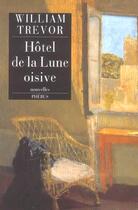-
Nombre de pages : (-)
-
Collection :
(-)
-
Genre :
(-)
-
Thème :
Non attribué
-
Prix littéraire(s) :
(-)
Résumé:
The Love Department by William Trevor - a darkly comic novel about a thief of the heart, by one of the world's best writers From the offices of her Love Department, Lady Dolores cures the heartaches of the lonely wives of Wimbledon with inimitable flourish and finesse. When her newest protege,... Voir plus
The Love Department by William Trevor - a darkly comic novel about a thief of the heart, by one of the world's best writers From the offices of her Love Department, Lady Dolores cures the heartaches of the lonely wives of Wimbledon with inimitable flourish and finesse. When her newest protege, the somewhat naive Edward Blakeston-Smith, is sent on a mission - to learn the secrets of seductive, scheming Septimus Tuam and stop him in his tracks - he learns all about love, its friends and enemies.
The Love Department was William Trevor's third novel, published in 1966. It will be enjoyed by readers of Colm Toibin, Evelyn Waugh and Muriel Spark.
'A fantasy which proliferates entertainingly from a germ of reality - the reality of boredom felt by comfortably-off suburban wives' Listener 'William Trevor can pack into ten or twenty pages an astounding richness of pathos, humour and tragedy' Francis King William Trevor was born in Mitchelstown, County Cork, in 1928, and was educated at Trinity College, Dublin. He has lived in England for many years. The author of numerous acclaimed collections of short stories and novels, he has won many awards including the Whitbread Book of the Year, The James Tait Black Memorial Prize and the Sunday Times Award for Literary Excellence. He has been shortlisted three times for the Booker Prize: in 1976 with his novel The Children of Dynmouth, in 1991 with Reading Turgenev and in 2002 with The Story of Lucy Gault. He recently received the prestigious David Cohen Literature Prize in recognition of a lifetime's literary achievement.
Donner votre avis
















